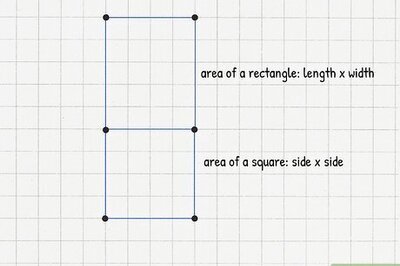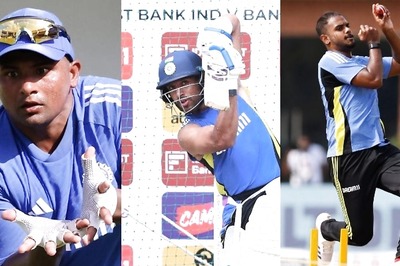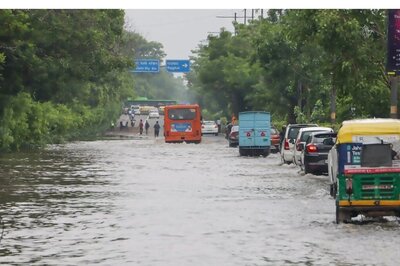
views
Ahmedabad: Tensions between India and Pakistan have added to the worries of around 500 families from the state’s fishing community whose members are languishing in Pakistani jails.
Jiviben Kamaliya, a 65-year-old widow who lives in Mitiyaj village of Gir-Somnath district, is finding it difficult to make ends meet ever since her 38-year-old son Dhiru, the only bread-winner in the six-member family, was captured by the Pakistan Marine Security Agency four months ago. Dhiru and a few others were fishing near the International Maritime Border.
Dhiru had ventured into the Arabian Sea to fish just four days after his father died. With Dhiru not around, his wife Vasu has to go to work as an agricultural labourer to feed her three children and mother-in-law.
“Our life has become miserable since my son was captured by Pakistan and we have no idea when they will release him. We are very poor and have no other means of livelihood. I can only hope that relations between the two countries improve so that my son returns home safely,” says Jiviben.
She adds that she has not yet received any help from the state government, which is supposed to provide Rs 4,500 monthly assistance to the families of captured fisherman.
With no clear demarcation of the maritime border, India and Pakistan resort to arresting fishermen from across the border who venture into the other country’s territorial waters.
“Whenever relations between the two neighbours deteriorate, Gujarat’s fishermen bear the brunt of it as it severely affects the fishing economy. In fact, we were scheduled to visit Pakistan on March 16 to initiate the process to bring back Indian fishing trawlers that had been confiscated by Pakistan since 2003. There are around 1,088 Indian fishing trawlers in Pakistan’s custody. Moreover, around 500 Indian fishermen are lodged in Pakistan jails. Pakistan was about to release around 137 of them in March, but recent cross-border developments have changed the scenario. We will have to wait till relations between India and Pakistan improve,” says Jivan Jungi, a leader of the fishing community and executive member of Pakistan-India Peace Forum and Democracy.
In August 2018, Pakistan had released 26 Indian fishermen as a goodwill gesture a day before Pakistan’s newly-elected parliament met for the first time.
“Fishermen generally net good catch near maritime border, but Indian security agencies sounded high alert following the Pulwama attack and asked fishermen not to go near international waters bordering Pakistan. This means there’s less fish to catch, severely affecting fishing economy and employment,” says Balubhai Socha, fishermen leader from coastal Kodinar town in Saurashtra region.




















Comments
0 comment